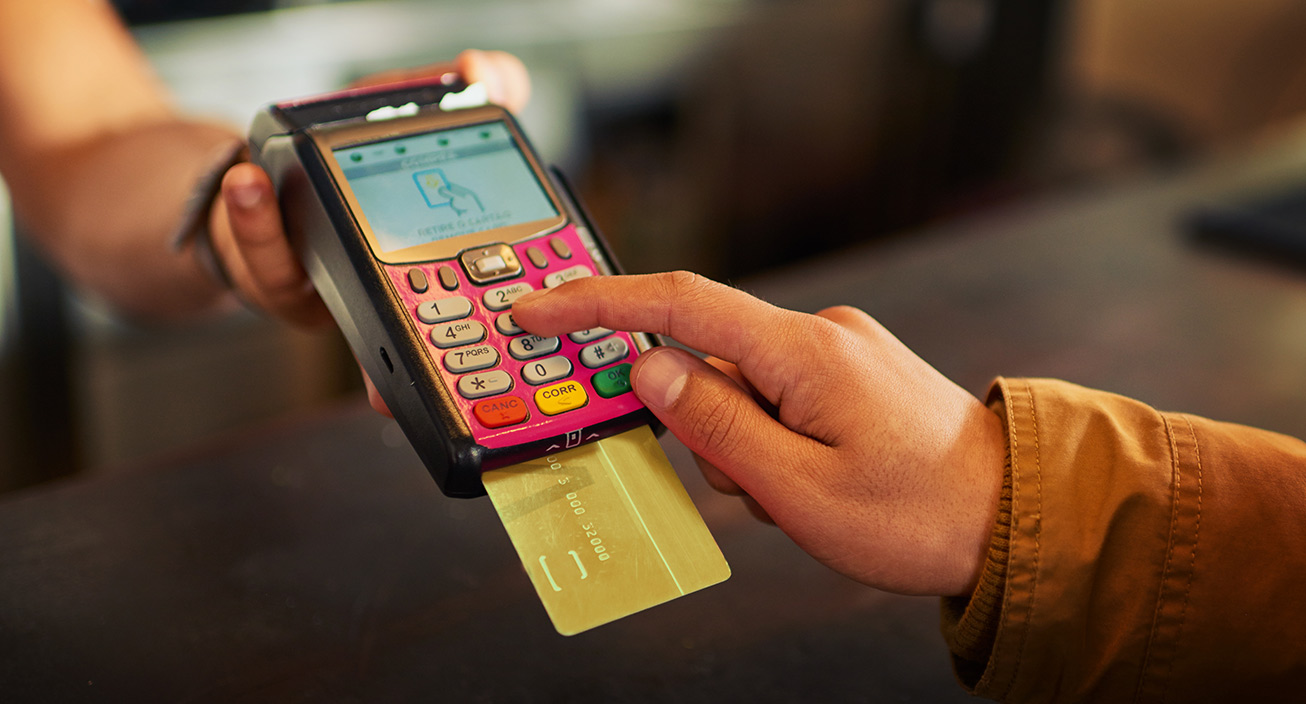So far in our credit score series, we’ve gone over a lot of the basics of credit scores, like what your credit score means, what a normal credit score is, and factors that can affect your credit score. At this point in the series, you should have a better understanding of why a high credit score is important and how you can boost your credit score, but you may be wondering: What credit score do you start with?
The world of credit can be intimidating and confusing when you’re first starting out. If you’re just starting to build credit, you may be wondering what the scores mean, how they’re calculated, and what’s good and what’s bad. Do we all start with bad scores, perfect scores, or no score at all? And if you need a good credit score to apply for credit, how do you ever get started? Read on to get an in-depth answer to “what credit score do you start with?” and how to build good credit from the get go.
- When is My First Credit Score Created?
- What’s Considered a Good Credit Score?
- What Factors Influence My Credit Score?
- How Can I Build Credit If I Don’t Have Credit?
- How Long Does It Take to Build a Good Credit Score?
- Your Starting Credit Score Is Low, But You Can Raise It
When is My First Credit Score Created?
Your credit score won’t just randomly appear once you’re old enough to apply for credit. You have to actually have a line of credit in your name to start generating a score. Once you’ve opened a line of credit — typically your first credit card — your credit score will begin to be calculated. This usually happens within six months.
It’s important to start building credit as a young adult so that you can access better insurance rates and have an easier time securing an apartment. But how low does your credit score start?
Contrary to popular belief, your credit score doesn’t start at zero. The lowest scores start at around 300, but it’s unlikely that you’ll start this low.
The main factor that could negatively impact your credit score when you’re first establishing credit is the length of your credit history, which will likely be very short. Don’t worry too much about the answer to “what does your credit score start at?”— after a few years of smart money management, you could be on your way to a good or even excellent credit score.
Why Is My Starting Credit Score So Low?
If your starting credit score is lower than you anticipated, don’t panic. That’s completely normal! You can’t actually start accumulating credit until you actually open a credit card in your own name. Without a credit card, there’s no way to track your credit usage. So the reason why your starting credit score is so low is most likely just because you don’t have that much–if any–credit history.
Fortunately, there are many ways you can raise your credit score, like:
- Paying your bills on time
- Paying off loans,
- Proving that you can handle different kinds of debt
Credit companies just want to be able to see that you’re responsible with your finances and able to make regular payments on your loans. As long as you stay on top of your finances, you should have an ideal credit score in no time.
It’s also important to note that your credit score is reflected in your credit reference, and you need a credit reference to be able to apply for loans or get to put a lower down payment on a house.
If you’re not sure what a credit reference is, it’s essentially a document that describes your credit history and creditworthiness to potential lenders. It’s important information to have if you’re looking to borrow money, which is why you should start building credit at a young age so that you can have enough credit history to qualify for a loan.
What’s Considered a Good Credit Score?

Most major credit score models range from 300 to 850, with the highest number representing the strongest score. However, credit companies such as FICO or VantageScore don’t officially decide what constitutes a “good” or “bad” score. This is all up to lenders. They’ll use your credit score to determine a variety of things, including:
- The interest rate they’ll charge for a loan
- The discount they may offer on an insurance policy
- Whether to approve credit and how much to approve
- Whether to increase or decrease credit limit
- Whether to close a risky account
So what do lenders consider a good or bad credit score? Every credit score model uses a slightly different scoring system. For this example, we’ll use the FICO score system of 300–850, as it’s very commonly used.
- 300–580: bad credit
- 580–669: poor credit
- 670–739: fair credit
- 740–799: good credit
- 800+: excellent credit
Remember that the system is relative. What one lender may consider an unacceptable score, another may accept. For example, most mortgages require a minimum credit score of 620 — or even as low as 500 for an FHA or “bad credit” loan. But if you’re applying for a low-interest credit card, lenders may not accept anything below a 700.
What Factors Influence My Credit Score?

There are a variety of factors that influence your credit score. Knowing what exactly goes into calculating your score will help you make smarter financial choices and improve your credit score over time. Here are the five main components of your credit score according to FICO:
Payment history
This shows lenders how often you’ve made payments on time and if you’ve missed a payment or made any late payments. It’s the factor that holds the most weight when calculating your credit score—so make sure to stay on top of those payments.
If you don’t pay your bills on time, they can get sent to a collections agency. When a bill is sent to collections, it can reflect negatively on your credit score. This is also why it’s important to check your credit score regularly so that you can catch errors on your credit report and dispute them as quickly as possible.
Length of credit history
Unfortunately, this will be the main thing hurting your credit score when you first start out. Lenders like to see that you have a long and reliable history. The shorter your credit history, the less they have to go off of when determining if you’ll be a risk.
This is one reason it may be a good idea to open a line of credit as soon as you’re eligible. If you wait a few years, it will take longer to establish a good credit history.
Mix of credit accounts
The more you can diversify your lines of credit, the better. For example, lenders would like to see a home or auto loan in addition to simply a credit card.
Credit utilization ratio
This simply refers to the percentage of your total available credit that you’re currently using. So if your credit limit is $1000 and you’ve used $100, your utilization would be 10%. For the best score, try not to use over 30% of your total credit limit.
Your debt vs. credit ratio can also impact your credit score. This ratio indicates the amount of debt you owe compared to your available credit. You should aim to have a low debt to credit ratio as that proves that you’re able to make purchases on credit responsibly.
New credit inquiries
It’s important that you’re aware of the difference between soft vs. hard credit inquiries. Any time you apply for a new line of credit, you’ll submit a credit inquiry. This is called a hard inquiry. Whether or not you get approved, the inquiry itself can hurt your credit score if you submit too many.
Limit yourself to three hard inquiries every two years. Simply checking your credit score, such as through a budgeting app like Mint, is called a soft inquiry, and this won’t affect your score.
How Can I Build Credit If I Don’t Have Credit?

Now that you’re familiar with what a good credit score is and what you can do to raise it, you may be wondering where to start. It’s a bit of a chicken-and-egg scenario. You want to start building credit, maybe by applying for a credit card, but your lack of credit may make it difficult to get approved.
There’s no magic fix that will fast-track you to an excellent credit score. However, there are some options for those who are just starting their credit journey.
- Entry-level credit cards: Student credit cards give young cardholders the chance to establish credit, but watch out for high interest rates and low credit limits. You may also consider a secured credit card, which requires a cash collateral in case you miss a payment. Just make sure the card doesn’t charge an annual fee.
- Co-signers: If you’re struggling to get approved for a credit card, student loan, or car loan, you may need to have a parent co-sign. With a co-signer, the risk for the lender is decreased because you have someone else — likely with better credit — on the hook for payments. If you’re under 21 and can’t show that you earn enough money to consistently make payments, a co-signer is usually required.
- Rent: Consistently paying rent on time is a great way to build credit without a credit card. Ask your landlord to report your payment history to credit reporting agencies. To go a step further, ask your utilities companies to do the same.
How Long Does It Take to Build a Good Credit Score?
The amount of time it will take to build a good credit score will differ for everyone and their financial situation. But the more informed you are about credit scores and the factors that impact them, the better you can be at improving your score.
For example, if you’re trying to build your credit, it might not be a good idea to get rid of closed accounts from your credit report. You might be tempted to close an account the second you pay off the credit card, but having multiple credit accounts can actually boost your credit in the long term. You may also be wondering if unemployment affects credit, but filing for unemployment will not appear on your credit report and has no impact on your credit.
Another way you can improve your credit score is by applying for joint credit cards with your spouse. Marriage and finances don’t always go hand in hand, but there are a lot of credit building opportunities that come with marriage. Building your credit might seem like a long and tiring journey, but you’ll get to that ideal credit score quicker than you think.
Your Starting Credit Score Is Low, But You Can Raise It
The road to building credit is long and winding, and a good credit score doesn’t happen overnight. Remember that what constitutes a good or bad score can be relative, and don’t get discouraged if your score isn’t where you want it to be right off the bat. Building good credit takes time and patience, but by making consistent payments, keeping your spending in check, and limiting your inquiries, you’ll start to see improvements. Stay resilient, and with some smart money moves, you’ll be on your way to a good credit score—and all the benefits that come with it.
So now that you know the answer to the question “what does your credit score start at?”, you can move onto the next chapter in our credit score series, where we’ll discuss what a good credit score is.
Sources: myFICO | The Lenders Network
Comments
Post a Comment
We will appreciate it, if you leave a comment.